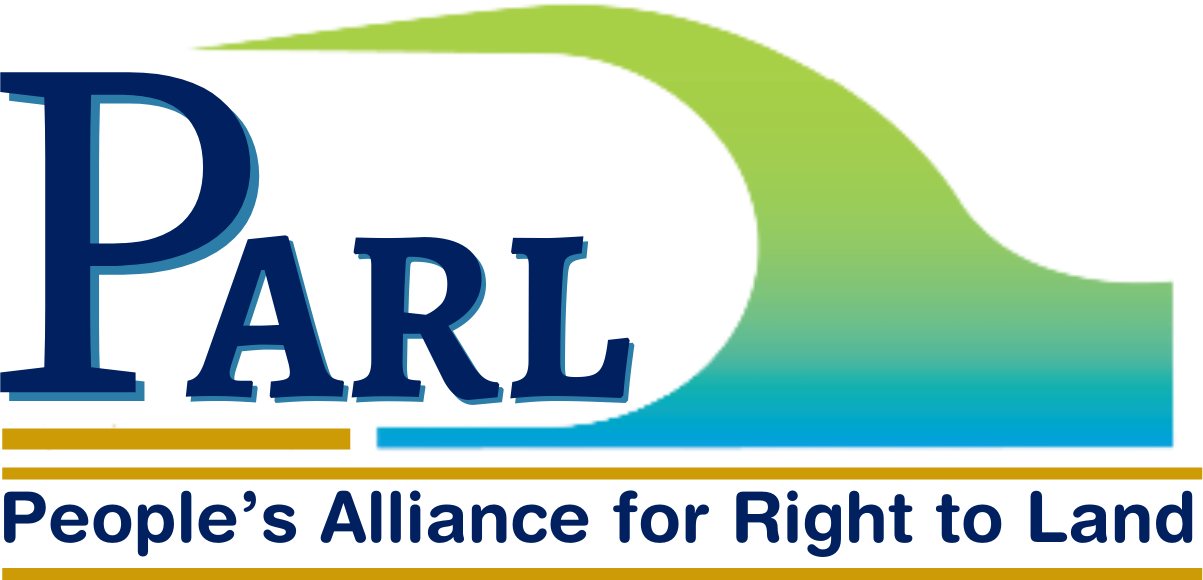The People’s Land Commission was initiated with the objective of studying the many problems and consequential impacts faced by communities as a result of existing land policies, land laws and land administration procedures and practices. This consultative process focused on the continuing exclusion of peoples’ concerns in formulating government policies.
The People’s Land Commission consisted of 11 individuals and included activists, academics, researchers and lawyers. The Commission conducted hearings between March and August 2019, visiting vulnerable areas, communities and affected people across 18 districts: Ampara, Anuradhapura, Badulla, Batticaloa, Colombo, Galle, Gampaha, Hambantota, Hatton, Jaffna, Kilinochchi, Mannar, Monaragala, Mullaitivu, Matara, Polonnaruwa, Trincomalee and Vavuniya. The Commissioners spoke to a total of 885 people: 428 women, 452 men and 5 others. PARL network partners coordinated Commission hearings. The locations were selected with the aim of ensuring a wide representation of geographical areas and a cross section of views from different ethnic, religious, social and economic backgrounds. The Commission visited protest sites, displaced and landless communities, those who have been evicted and/or relocated and areas where development and urban regeneration projects are ongoing or are being planned.
Limitations of time, resources, information available to organising partners and other practical considerations prevented the Commission from visiting all affected areas. There was also often not sufficient time to enter into the deep discussions with affected people that their situations required. For example, it was soon apparent that many experiences of injustice spanned generations, and had multiple dimensions including gender and other rights violations.
The objective of this report is to serve as a guide to Sri Lanka’s land policy, law and administration. It seeks to reform the current system so it can better respond to peoples’ suffering caused by land struggles and help develop their lives, as well as promote environmental sustainability and social responsibility to future generations. This report is not intended to provide solutions to specific land struggles and issues; instead its purpose is to recommend good practice procedures, guiding principles and priorities when dealing with people and land.
The Commission and PARL will be presenting this report and its recommendations to various stakeholders in Government ministries and State institutions dealing with land, reparations, transitional justice, reconciliation, women’s rights and development to name a few. Recommendations in this report calling for various policy reforms as well as institutional and procedural reform are driven by affected communities themselves and this we hope will lead to a more meaningful and sustained discussion on land and land administration reform overall. Furthermore, this report will be shared in Sinhala and Tamil with the communities that participated in the hearings as well as others engaged in various land struggles across the country. The shared experiences and collective recommendations will, we hope, strengthen and inspire these communities in their ongoing advocacy and campaigns and help them take forward the contents of this report, using it in their own work.
This report is a combination of a literature review, extensive notes and recordings taken by note-takers at the hearings and observations and analysis by commissioners and researchers. Members of the commission held regular debriefs to share and analyse trends and findings as well as to identify ways to summarize and collate the information being gathered. The information was broadly categorized into four key themes – dispossession, livelihoods, environment and identity.
All recommendations presented in this report are derived from the inputs made by affected communities in consultations.
Download and read the full report here https://drive.google.com/drive/folders/19CGinDt1mr21sBWSoouJTQhxPGKw3-Yw?usp=sharing or click 'Download the article' below.






